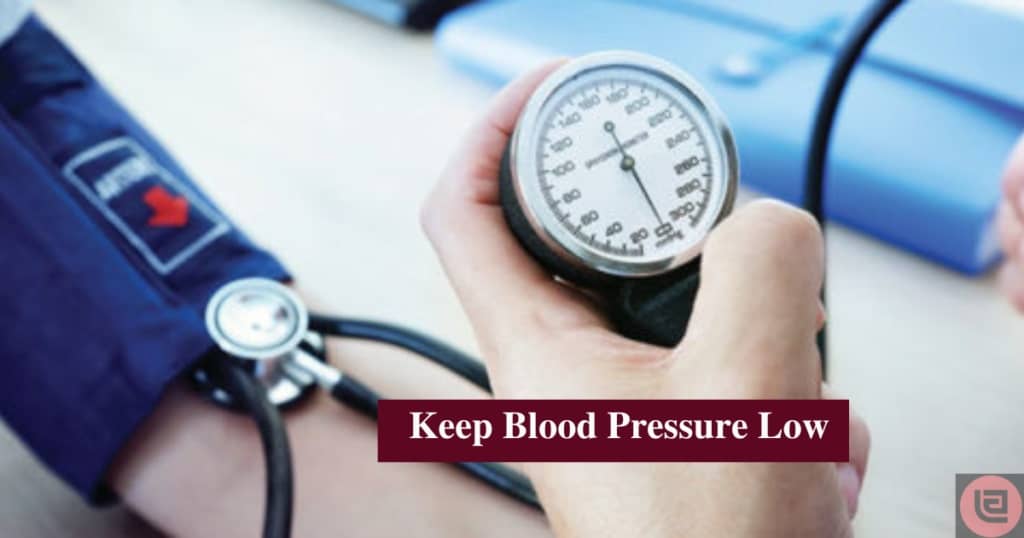Hypertension (High Blood Pressure) linked to Greater Risk of Severe Covid, study finds.
Keeping Blood Pressure Control (Hypertension)
Keeping your blood pressure below this (90-129) number reduces the risk of severe Covid, a study finds
High blood pressure is a known risk factor for a bout of Covid-19 severe enough to raise the specter of hospitalization and death.
In fact, research has shown having high blood pressure doubles the risk of having a severe case of Covid, even if you are fully vaccinated and boosted.
Understand Blood Pressure Readings with Systolic and Diastolic Measurements in mmHg
Blood pressure is measured in units of millimeters of mercury (abbreviated as mmHg), which consists of two numbers — an upper or systolic reading that represents the maximum amount of pressure in your arteries, and the lower or diastolic reading that shows the pressure in your arteries when your heart muscle is at rest between beats.

What is the Blood Pressure Reading to Trigger Risk of Covid-19? Study Answers Question
But what is considered a high enough blood pressure reading to trigger that risk? To date, scientists haven’t been sure. Now, a new study out of England published Wednesday in the journal PLOS One has answered that question.
“We found that in those with diagnosed hypertension, the risk of Covid-19 significantly increased once the high number exceeded 150 mmHg or the low number exceeded 90 mmHg compared to a target blood pressure (120-129/80-89 mmHg),” said lead author Holly Pavey, a doctoral student at the University of Cambridge in the United Kingdom who is funded by the British Heart Foundation, via email.
Uncontrolled High Blood Pressure Increases Risk of Hospitalization and Death from Covid-19: New UK Study
The research found people with this level of uncontrolled high blood pressure are more likely to be admitted to the hospital and die from a Covid infection, regardless of other known risk factors such as age, ethnicity or obesity.
The new study was able to drill down and be more specific because of the inherent integration in the UK National Health Service. That level of data sharing allows access to “really granular data on long-term blood pressure control for their patients,” said Dr. Joseph Ebinger, an assistant professor of cardiology and director of clinical analytics of the Smidt Heart Institute at the Cedars-Sinai Medical Center in Los Angeles.
“They found it’s not just the diagnosis of high blood pressure — yes or no — but that the risk goes up as your systolic blood pressure goes up, which is really a measure of lack of control,” said Ebinger, who was not involved in the study.
Unfortunately, many people fail to properly control their blood pressure, even after they have been diagnosed and are on medication, Ebinger added.
“It’s estimated that less than half of individuals with a diagnosis of high blood pressure actually have control over their hypertension, so this is a big problem,” he said. “That’s due to a myriad of factors: underdiagnosis, lack of awareness, medication nonadherence, and undertreatment.”
On the positive side, successfully reducing blood pressure through medication was linked with a corresponding reduction in risk for severe Covid, the new study found.
“It is really important for individuals to have regular blood pressure checks and for doctors to try and get their patients’ blood pressure controlled,” Pavey said.
“Controlling the blood pressure to target levels is important, irrespective of the type of treatment used to achieve it,” she said. “Ultimately blood pressure control will help to reduce the risk of suffering severely from new strains of Covid-19 or other viruses in the future.”
Hypertension Statistics
Access to Health Care:
According to the Centers for Disease Control and Prevention (CDC), people with hypertension are more likely to have limited access to health care, which can put them at greater risk for severe COVID-19.
Prolonged Illness:
People with hypertension are more likely to experience prolonged illness if they contract COVID-19.
Hospitalization:
People with hypertension are more likely to be hospitalized if they contract COVID-19.
Intensive Care Unit:
People with hypertension are more likely to be admitted to the intensive care unit (ICU) if they contract COVID-19.
Death Rates:
People with hypertension have a higher risk of death due to COVID-19 compared to those without hypertension.
Pre-Existing Conditions:
People with hypertension are more likely to have other pre-existing conditions that can increase their risk of severe COVID-19.
Age:
Older adults, who are more likely to have hypertension, are also more likely to have severe COVID-19.
Ethnicity:
People of color, who are more likely to have hypertension, are also more likely to have severe COVID-19.
Obesity:
People with hypertension are also more likely to be obese, which increases the risk of severe COVID-19.
Lifestyle Factors:
People with hypertension are more likely to engage in lifestyle factors such as smoking, which increases the risk of severe COVID-19.
Read More: Multiple Sclerosis, its Impact, Symptoms and the Causes